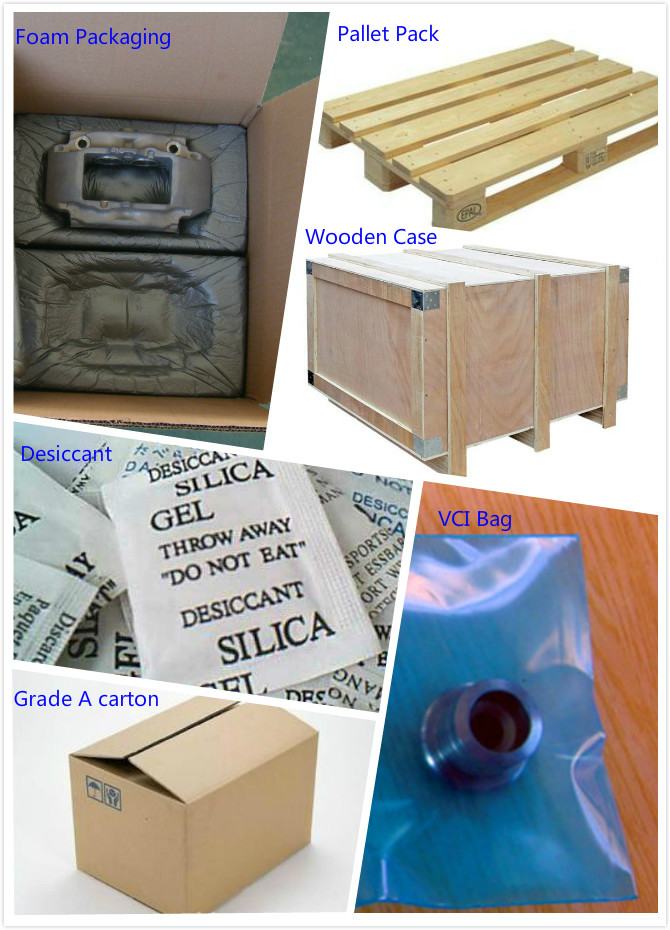![aluminum alloy machining parts aluminum alloy machining parts]()
The core difference between aluminum alloys 6061 and 6061-T6 lies in the heat treatment process and mechanical properties : 6061 is the base aluminum alloy model, while 6061-T6, after solution heat treatment and artificial aging (T6 state), has higher strength and hardness but slightly lower plasticity.
Differences in composition and process
6061 : A basic aluminium alloy, mainly composed of magnesium (0.8%-1.2%) and silicon (0.4%-0.8%), which retains medium strength (tensile strength about 205 MPa) and good machinability through annealing.
6061-T6 : After solution heat treatment (heating to about 530°C and rapid cooling) and artificial aging (holding at about 160°C for 18 hours) on 6061, Mg2Si strengthening phase was formed, the tensile strength increased to about 310 MPa, the yield strength reached 276 MPa, but the elongation decreased to 12%.
Performance comparison
Feature 6061 6061-T6
Tensile strength: 205 MPa 310 MPa
Yield strength: 110 MPa 276 MPa
Elongation: 16% 12%
Hardness: Medium high
Application scenarios
6061 : Applicable to decoration, construction, electronics and other fields where strength is not highly demanded, such as car frame, radiator, etc.
6061-T6 : For high-intensity demand scenarios such as aviation components, precision instruments, ship structures, etc.
Advantages of 6061T6 Aluminum Alloy Precision CNC Machining Ball
Lightweight & High Strength: 6061-T6 aluminum combines exceptional strength-to-weight ratio, ideal for applications demanding durability without added bulk (e.g., drones, aerospace components).
Precision Engineering: CNC-machined to ultra-tight tolerances (±0.01mm) and polished to a smooth surface finish (Ra ≤0.8μm), ensuring seamless integration and reduced wear in high-speed systems.
Corrosion Resistance: Naturally resistant to rust and environmental degradation, with optional anodizing or coatings for extreme conditions.
Full Customization: Tailor diameter (5–200mm), internal features (threads, slots, bores), and surface treatments to match your exact design needs—prototype support available.
Cost-Effective Performance: Optimize efficiency in robotics, automotive, or fluid control systems while reducing long-term maintenance costs.
Why Choose Us?
- Expert technical support for complex designs.
- Competitive pricing for bulk orders.
- Rigorous QA with 100% dimensional and hardness testing.
Upgrade your components with precision-engineered reliability—request a sample or quote now!
Product Use of 6061T6 Aluminum Alloy Precision CNC Machining Ball
Aerospace: Lightweight sensor housings, drone rotor components, or satellite alignment mechanisms requiring high strength and dimensional stability.
Robotics: Precision joint bearings, gripper mechanisms, or robotic arm linkages for smooth motion and minimal inertia.
Automotive: Fuel system valves, transmission guides, or suspension pivot balls in high-performance vehicles.
Fluid Control: Flow-regulating balls in hydraulic/pneumatic systems, valves, or pumps, leveraging corrosion resistance and leak-proof surfaces.
Medical Devices: Sterilizable surgical tool components or imaging equipment parts needing biocompatibility and ultra-smooth finishes.
Optics & Instruments: Calibration spheres, lens mounts, or laser alignment tools with strict tolerance requirements.
Industrial Machinery: Wear-resistant guide balls for CNC equipment or conveyor systems in harsh environments.
Packaging:
![包装组图_meitu_3 包装组图_meitu_3]()
FAQ:
1Q: What certifications do your aluminum balls comply with?
1A: Our products meet ASTM B221 and ISO 9001 standards, with material traceability and optional third-party inspection reports.
2Q: Can you machine non-standard features like internal threads or slots?
2A: Yes! We customize bores, threads, grooves, and complex geometries—share your CAD file for a feasibility review.
3Q: Do you offer anodizing or other surface treatments?
3A: Absolutely. Hard anodizing (up to MIL-A-8625), PTFE coatings, or polishing can be added for wear/corrosion resistance.
4Q: What is the tolerance range for high-precision applications?
4A: Standard tolerance is ±0.01mm; tighter tolerances (±0.005mm) are achievable for critical aerospace or medical uses.
5Q: How do you ensure consistency in bulk orders?
5A: Every batch undergoes 100% inspection, surface roughness testing, and hardness checks (Rockwell scale) for guaranteed uniformity.





























